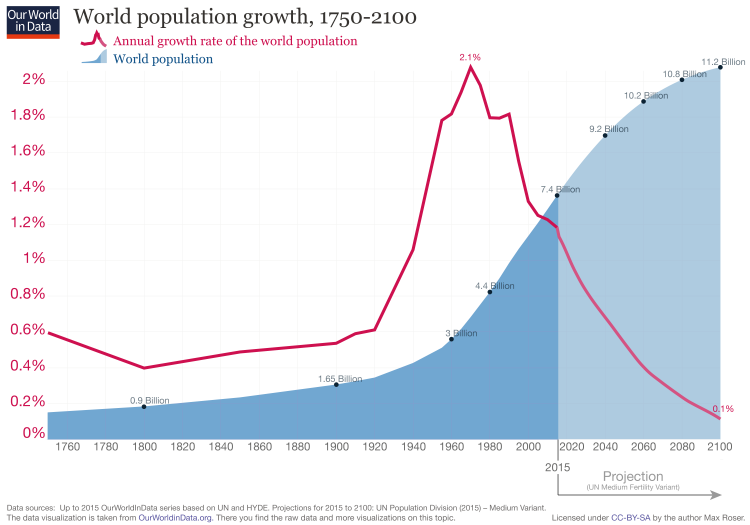This is a pretty important global issue today, so I'm going to take a serious but open-minded approach and encourage you to do the same. Wouldntitbenice, Crescentstar, cool74, and malkalack have already voiced relatively well-founded opinions, so pardon me if this sounds a little repetitive at points.
The 5 stages of demographic transition have been pretty well-established in history. Here they are:
1. Before development, birth rate is high but death rate is also very high, so the population does not grow too much. (This happened up until the industrial revolution).
2. During development, birth rate is still high because people/society have not adjusted yet but death rate drops, so the population increases drastically.
3. After development, birth rate drops as children become less valuable and other various factors such as birth control and sex ed. Women are usually not seen as just child bearers.
4. Population growth stops as birth rate again levels with the death rate.
5. For uncertain reasons, data has shown that the birth rate rises again quite a while after development, but not by too much.
Today, there are quite a few nations in stages 4 or 5, but developing nations are usually found in either 2 or 3. As long as nations continue to develop thanks to capitalism, though, the demographic transition should continue to progress.
Do you like graphs? I like graphs.
 You can ignore the projection if you want, but it is based on statistical models from the UN.
You can ignore the projection if you want, but it is based on statistical models from the UN.
The most important result from this data-based graph is that while the world population is still increasing, the rate of that growth is decreasing. You can see this in the decrease in the instantaneous gradient of the main blue graph or just look at the line. If you've taken differential calculus, this should be easy to understand.
Since around the 1970s, the rate of population growth has decreased quite a bit, and the UN expects that it will continue to decrease to a little above 0% in the long run.
Will this problem eventually consume us all? Well, even if the model is correct and the world population is going to reach a peak, we still have to deal with a growth all the way to around 11.2 billion. I'm going to assume you're worried about the effect we might have on the environment because starvation, in a way, 'fixes' the problem. In developed countries, even though the population is relatively stable, people are still very wasteful and global warming/global dimming/ocean acidification/waste build-up continue to be huge problems.
Sure, we should emphasize development of nations as the data shows that increases in education and lessening mortality cause an eventual decrease in birth rate (phase 3 of demographic transition), but developed nations have their own problems to worry about.
The real issue here is our treatment of the environment. If we can come up with a system to make all our energy renewable and stop polluting the environment so much, then an increase in the amount of people using said energy and resources shouldn't be too much of an issue. There's plenty of energy from the sun to go around if you ignore the fact that the sun will eventually explode.
Even if we could impose a global restriction on population and modern democratic/capitalist nations would accept it, we would be dodging the real issue because our population is not increasing exponentially, and developed countries would still produce astonishing amounts of waste at an unsustainable rate.
Here are some related links in case you like being educated. My information comes mostly from the second one.
http://www.ucsusa.org/global_warming#.WdBZiEt97rc
?https://ourworldindata.org/world-population-growth/
http://news.nationalgeographic.com/2015/11/151113-datapoints-china-one-child-policy/
http://storyofstuff.org/movies/story-of-stuff/
